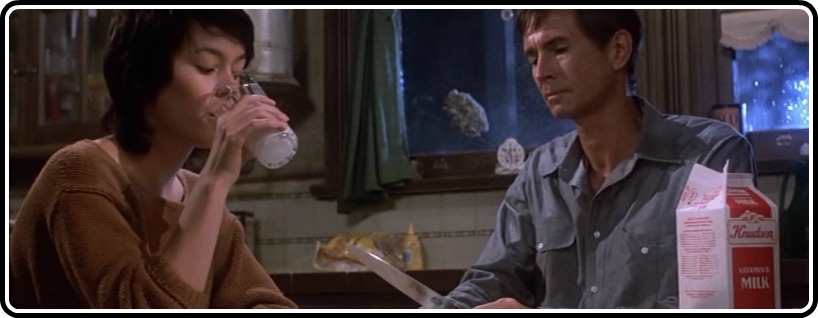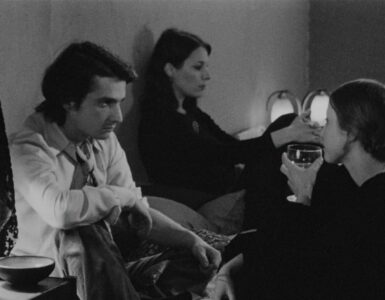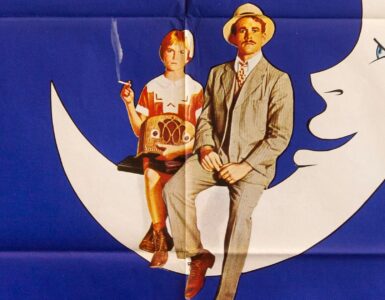It’s an unspoken line of thinking that, while it may seem bizarre, just about anything and everything is ripe for either a sequel or a remake. And while a classic film like Alfred Hitchcock’s legendary masterpiece Psycho may seem like a gold standard of cinematic purity, not only has it seen a shot-for-shot remake thanks to the otherwise brilliant Gus Van Sant, but it has seen a series of sequels further telling the story of Norman Bates, his deranged mother and the violent shenanigans they find themselves in the middle of routinely. Hell, there’s even a TV show that plays as a prequel to this tale, itself originally based on a novel.
However, what may be even more bizarre is that not only do the sequels (at least the two being released by Scream Factory this week, now on Blu-ray) hold themselves up on their own two feet, playing as genuinely solid thrillers in their own right.
One of the more underrated horror sequels of its day, Psycho II finds Norman Bates fresh out of a mental institution, and set to once again climb up those flights of stairs to the legendary compound he called home. 22 years after the events of the first film, Norman attempts to fight his past, starting a new life in the ever growing shadows of more than just his dead mother, only to find that these proverbial skeletons in his closet may be more than he’s able to fight on his own.
Finding Anthony Perkins once again in the role of Norman Bates, this is a decidedly different Norman than we were once privy to in the prior film. If one thing can be said with regards to one of this film’s major successes it is found in the playfulness of the narrative at its center. With a script from Tom Holland, the film is ostensibly a role reversal of sorts, thrusting the audience allegiance directly on the side of Norman for much of the picture. As Norman leaves the asylum, he begins working at a diner, only to meet a beautiful young brunette named Mary who may be closer to his past than one would imagine. The daughter of Lila Loomis, sister to none other than Marion Crane, she and her mother begin accosting him, trying their damndest to get him back in an asylum. When Mary begins to, sort of, fall for Norman and his seemingly harmless charm, things change entirely, thrusting Norman into the hero role for much of this film. An interesting play on audience sympathy, the film’s script is chock full of really interesting ideas and while it is indeed an overlong picture (the pace makes its 113 minute runtime feel double that length) it isn’t without its thought provoking narrative turns.
Also, the performances really turn this film into something verging on becoming great in and of itself. Perkins is an absolute revelation here, taking on the role that made him famous (and ostensibly the only role people really know him for) and breathing a different sense of vitality into it. Very few actors “get” their characters the way that Perkins “got” Norman, and that love and lack of judgment is absolutely palpable here. Vera Miles is equally great as Mary, pairing off with Perkins perfectly as to give the film some really great chemistry and a heartbeat that the subsequent sequels are completely devoid of. Toss in the likes of Robert Loggia, Meg Tilly and a score from cult icon Jerry Goldsmith, and you have a film that is shockingly above average, sequel to a classic film or not.
The kicker? While he may be best known for his Aussie picture Roadgames, director Richard Franklin turns this film into a film that both verges on being silly in its obvious touches of Hitch’s original film, while also being a film worth its own weight in celluloid. The pacing is a definitive issue here, particularly in the manner in which the story is told, and the story itself isn’t all that interesting outside the play on allegiances, but what is outstanding here is the assurance Franklin has with his camera. A sequence like this film’s shower scene is ridiculously eye rolling and cartoonishly campy, but be it Franklin’s interesting percussive direction during action sequences or his smile-inducing Hitchcock “cameo,” the film really stands up as a clichéd but ultimately thrilling continuation of a narrative most film fans think is untouchable.
Scream Factory has put this film out, as well as its sequel Psycho III, on Blu-ray (more on that one later this week), and this release is a solid one that horror hounds need on their shelves. The film itself is overall a great, but troublingly scattershot picture, but the transfer here is solid, and the Goldsmith score is as lively as ever here. The film comes with a good commentary with writer Holland, and “vintage” interviews with Franklin, Perkins and Miles. Paired up with both III and the love letter documentary The Psycho Legacy, Psycho II will hopefully become a newly beloved horror sequel people will be sad to have forgotten.






![Bergman Island (The Criterion Collection) [Blu-ray]](https://criterioncast.com/wp-content/uploads/2022/11/bergman-island-the-criterion-collection-blu-ray-400x496.jpg)
![This Is Not a Burial, It’s a Resurrection (The Criterion Collection) [Blu-ray]](https://criterioncast.com/wp-content/uploads/2022/11/this-is-not-a-burial-its-a-resurrection-the-criterion-collection-blu-ray-400x496.jpg)
![Lars von Trier's Europe Trilogy (The Criterion Collection) [The Element of Crime/Epidemic/Europa] [Blu-ray]](https://criterioncast.com/wp-content/uploads/2022/11/lars-von-triers-europe-trilogy-the-criterion-collection-the-element-of-400x496.jpg)
![Imitation of Life (The Criterion Collection) [Blu-ray]](https://criterioncast.com/wp-content/uploads/2022/11/imitation-of-life-the-criterion-collection-blu-ray-400x496.jpg)
![The Adventures of Baron Munchausen (The Criterion Collection) [4K UHD]](https://criterioncast.com/wp-content/uploads/2022/11/the-adventures-of-baron-munchausen-the-criterion-collection-4k-uhd-400x496.jpg)
![Cooley High [Criterion Collection] [Blu-ray] [1975]](https://criterioncast.com/wp-content/uploads/2022/11/cooley-high-criterion-collection-blu-ray-1975-400x496.jpg)